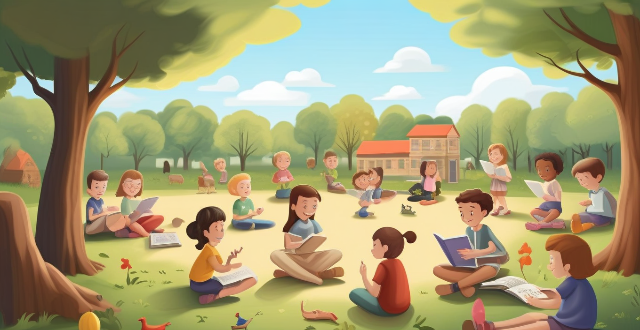Parents can support their child's preschool learning by reading with them, encouraging curiosity and exploration, fostering socialization skills, and establishing routines and structure. Reading enhances language development and cognitive abilities, while also fostering emotional bonding. Encouraging curiosity through activities like nature walks and science experiments helps in cognitive and emotional development. Fostering socialization skills is crucial for your child's interaction with peers and adults. Establishing routines and structure promotes self-discipline, reduces anxiety, and enhances learning.

How Can Parents Support Their Child's Learning in Preschool?
As parents, it is essential to support your child's learning journey during their preschool years. Here are some ways you can do so:
1. Read with Your Child
Reading is one of the most effective ways to support your child's learning in preschool. It helps them develop language skills, cognitive abilities, and a love for reading. Make sure to read age-appropriate books that interest your child.
Benefits of Reading with Your Child:
- Enhances Language Development: Exposes your child to new vocabulary and sentence structures.
- Builds Cognitive Abilities: Improves memory, concentration, and problem-solving skills.
- Fosters Emotional Bonding: Creates a special bond between parent and child through shared experiences.
2. Encourage Curiosity and Exploration
Preschoolers are naturally curious about the world around them. Encourage this curiosity by providing opportunities for exploration and discovery. This can be done through various activities such as nature walks, science experiments, or arts and crafts projects.
Ways to Encourage Curiosity and Exploration:
- Provide Access to Different Materials: Offer a variety of materials for your child to explore, such as blocks, puzzles, and sensory bins.
- Create an Inviting Environment: Set up a space where your child can freely explore and experiment without fear of making mistakes.
- Ask Open-Ended Questions: Encourage your child to think critically by asking questions that require more than a simple yes or no answer.
3. Foster Socialization Skills
Socialization is an important aspect of preschool education. Help your child develop social skills by encouraging interactions with peers and adults outside the family circle.
Ways to Foster Socialization Skills:
- Enroll Your Child in Extracurricular Activities: Sign your child up for classes or clubs that interest them, such as dance, music, or sports.
- Arrange Playdates: Schedule playdates with other children in your community to give your child opportunities to practice social skills.
- Model Good Behavior: Teach your child how to interact respectfully with others by modeling good behavior yourself.
4. Establish Routines and Structure
Having consistent routines and structure can help your child feel secure and supported in their learning environment. Establish regular bedtimes, meal times, and daily schedules to provide a sense of stability and predictability.
Benefits of Establishing Routines and Structure:
- Promotes Self-Discipline: Helps your child learn time management and self-discipline.
- Reduces Anxiety: A predictable routine reduces anxiety and stress for your child.
- Enhances Learning: Consistent routines allow your child to focus better on their learning tasks.
In conclusion, supporting your child's learning in preschool involves reading with them, encouraging curiosity and exploration, fostering socialization skills, and establishing routines and structure. By implementing these strategies, you can help set your child up for success in their future educational endeavors.